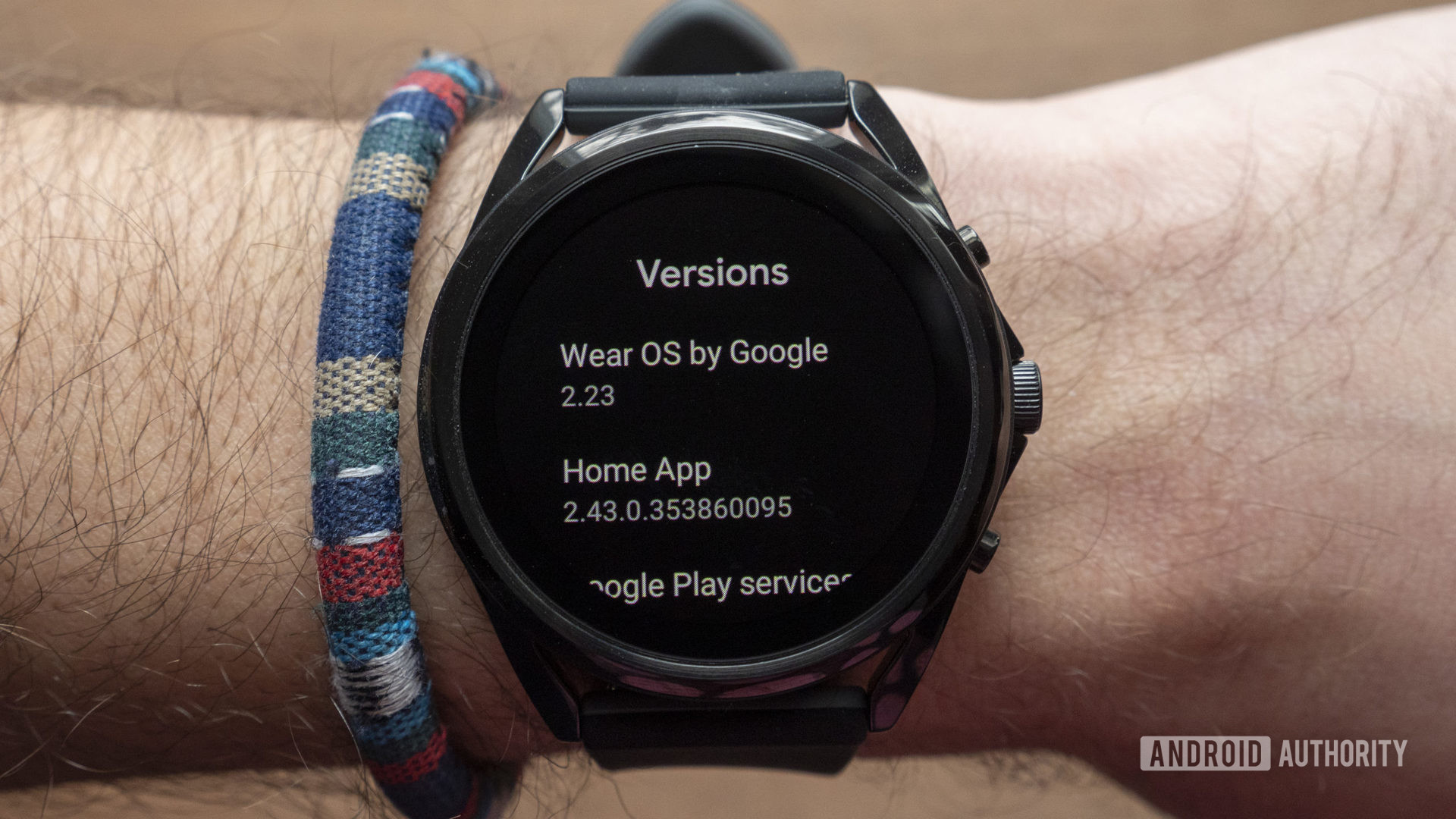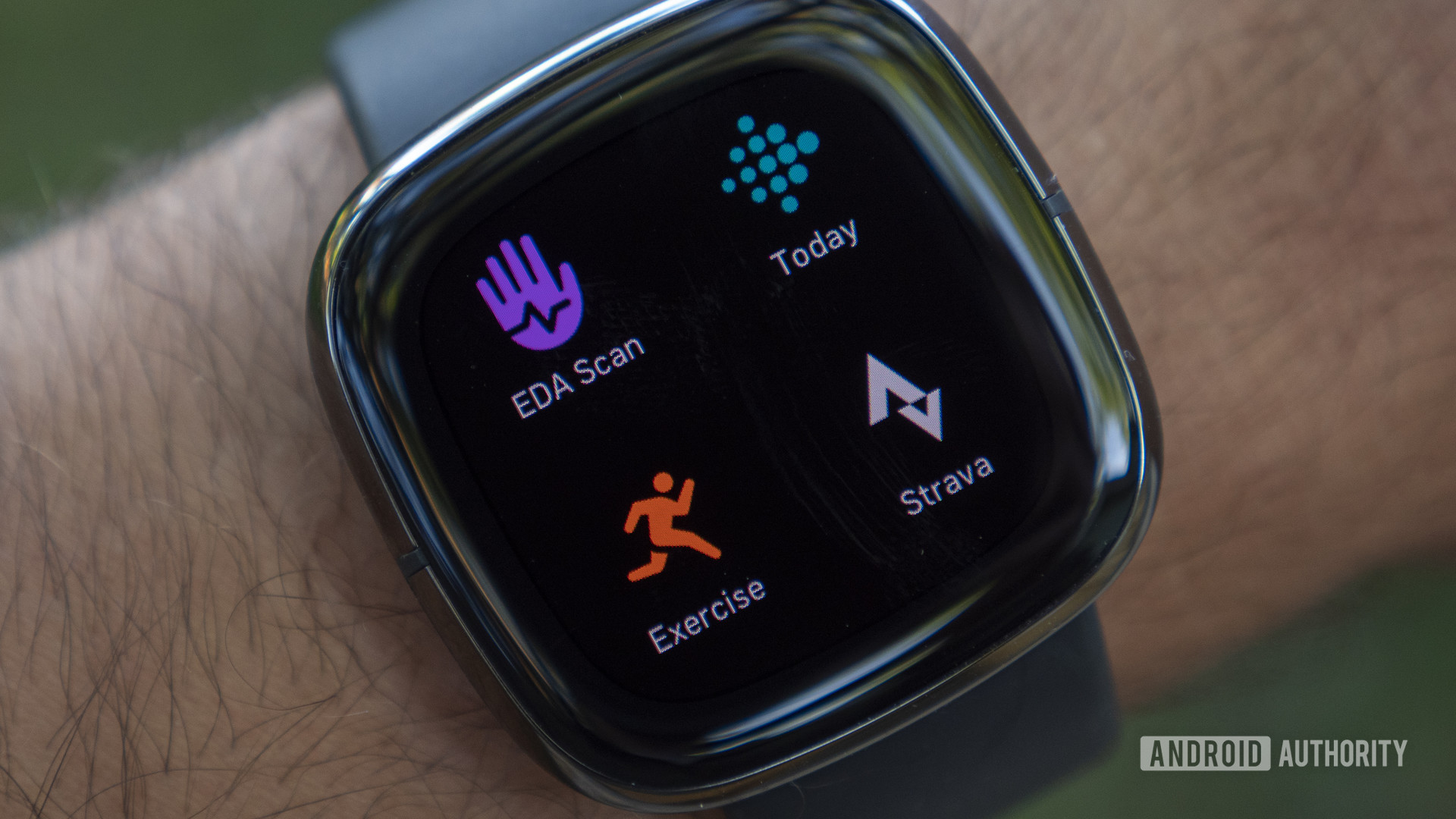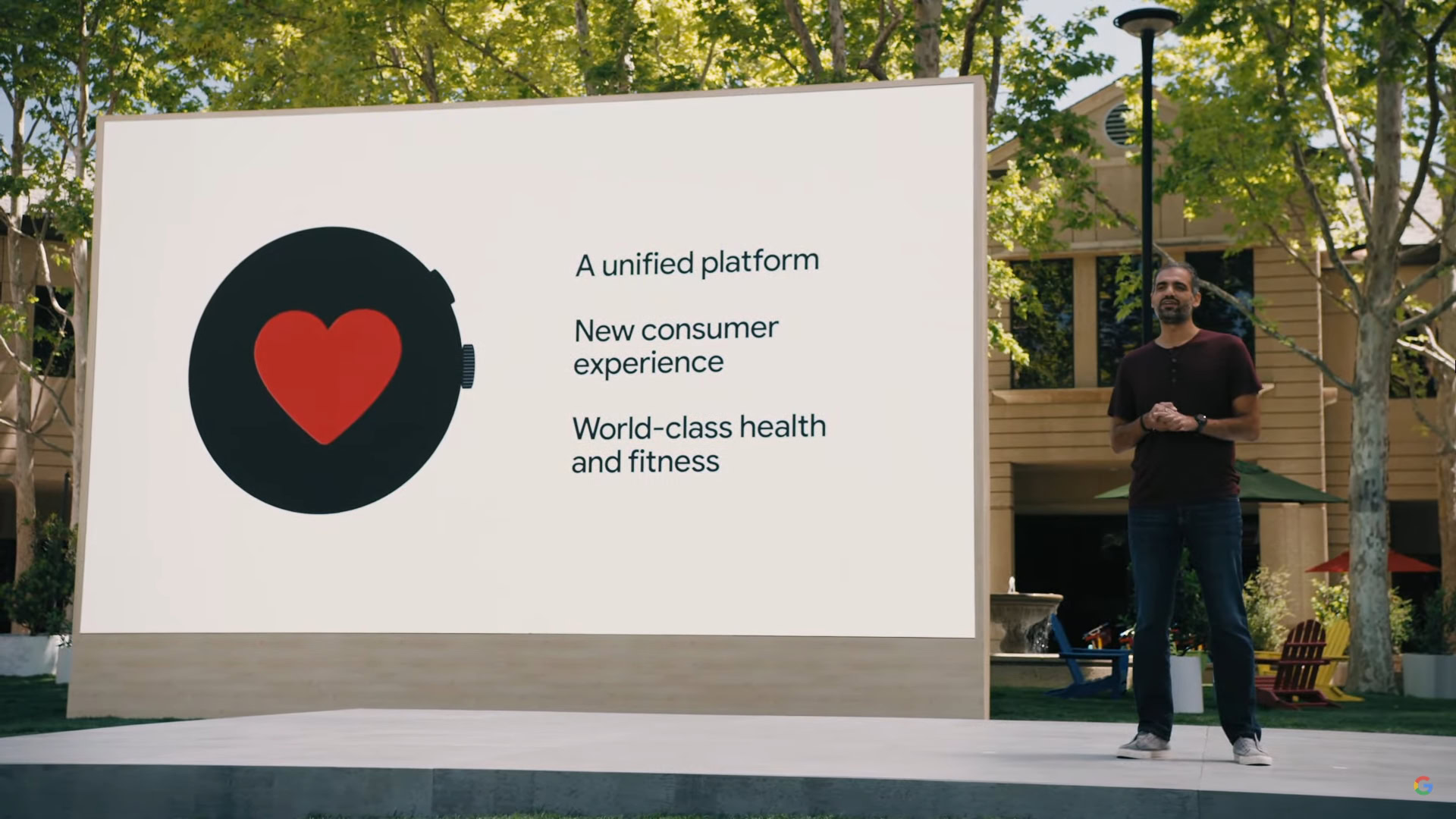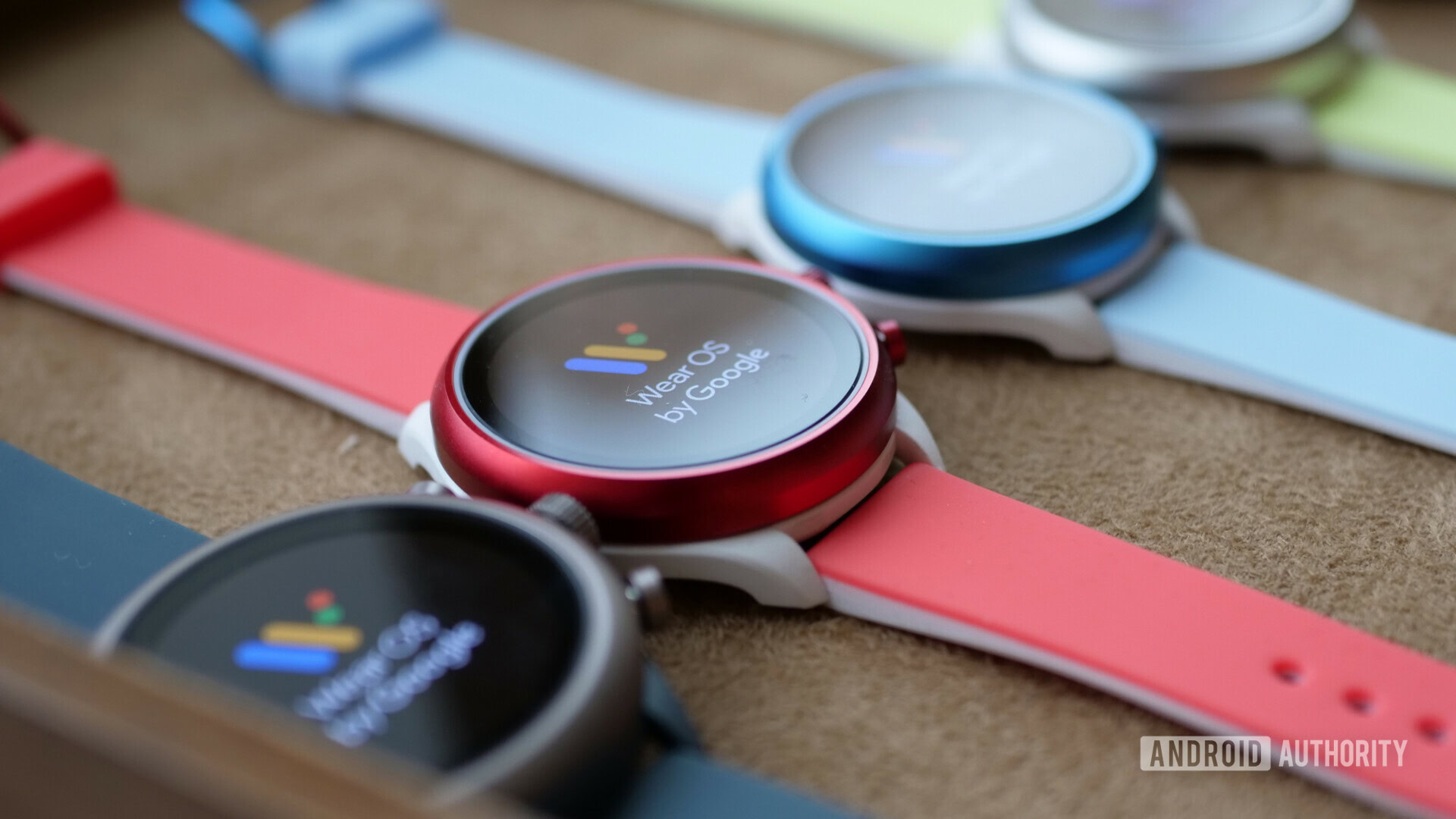Affiliate links on Android Authority may earn us a commission. Learn more.
By your powers combined: Is it too late for Google's wearable alliance?

Google’s Android operating system for smartwatches has seen multiple revamps in its less than a decade-long existence. First introduced in 2014, the software appeared as Android Wear on devices like the LG G Watch and Samsung Gear Live. In 2018, Google introduced Android Wear 2.0 with new features like LTE connectivity, Android Pay, and a more modern design. It wanted users to “make the most of every moment.” Soon after, Android Wear was renamed Wear OS and tech companies, as well as fashion brands, started gravitating towards the platform.
Fast forward to 2021, and Wear OS is yet to cut the mustard. It’s not even a blip in the overall smartwatch landscape. But now, with Samsung and Fitbit on board, can Google finally give us wearable software worthy of taking on the almighty Apple Watch? Let’s examine whether Google’s latest tie-ups can pull Wear OS out of its misery or if it’s too late for the company’s wearable alliance.
Google + Samsung + Fitbit = Third time’s a charm for Wear OS?

It’s being called the biggest revamp of Wear OS: Samsung is bringing in its software learnings from Tizen on the Galaxy watches. Google promises a fresh look that echoes its Material You design philosophy. Fitbit is bringing its familiar features to the party. But is all that enough to snatch the top spot from Apple, or even up the existing share of Fitbit, Samsung, and Wear OS devices?
To put things in perspective, Apple currently commands almost 40% of the global smartwatch market, followed by HUAWEI with an 11% chunk, and Samsung with a 9% share. Fitbit is a distant fifth with 6.2%. The rest of the market is shared between smartwatches from BBK brands and other players. And none of the non-Apple devices currently run Wear OS, so you can only imagine the negligible market presence of the wearables running Google’s software.
Neither Google nor Samsung or Fitbit have been able to crack the smartwatch code.
With these numbers, it’s only natural that developers would be more inclined to make apps and services for Apple. But that’s not the only reason. While they do make noteworthy devices, their efforts so far have failed to take down the Apple Watch, and there are many explanations as to why this is the case.
Pitfalls of Google, Samsung, and Fitbit

Samsung’s Galaxy Watch 3 is perhaps one of the best premium smartwatches you can buy right now. Fitbit has devices like the Versa 3 and the Sense that bring good value to the table. Google still doesn’t have a Pixel Watch, but devices like the Mobvoi TicWatch Pro 3 and Fossil Gen 5 perhaps represent the best of what Wear OS currently offers.
Also read: Here are the best Wear OS smartwatches you can buy right now
However, all three platforms and brands combined supply far fewer apps compared to the Apple Watch. While Samsung and Wear OS watches are better off than Fitbit, whose app selection is anemic, they are still not on a level playing field with Apple.
What’s also lacking with Samsung, Wear OS, and Fitbit wearables is the uncanny seamlessness of the Apple Watch. Aside from apps, its productivity features outnumber those of all three platforms.
The Apple Watch’s hardware is also far superior. The Series 6 runs on Apple’s new S6 SoC based on the A13 Bionic chip used on iPhone 11. That’s like an Android watch with a chip based on the Snapdragon 888. Of course, the latter doesn’t exist.
There’s no guarantee that Google’s alliance with Samsung or Fitbit could ever result in the much-needed hardware boost for Wear OS smartwatches that are sluggish and slower in comparison.
Wear OS: The update conundrum
Other Wear OS problems also hang in the balance right now. The most annoying thing about the software is the lack of timely updates. Even with Samsung’s collaboration, Google will most likely be the one to issue future Wear OS updates. However, unlike Android proper, it has never followed a regular schedule for Wear OS updates. The situation is reminiscent of LG’s awful update center that promised timely software updates but failed spectacularly in doing so.
The same is the case with hardware updates for Wear OS watches. Qualcomm processors that power Wear OS devices have unacceptably long gaps between new SoCs. As you might recall, the Snapdragon 4100 series for Wear OS smartwatches launched in 2020 after a break of two years, and since then, only one smartwatch has launched with the silicon.
Apple's watchOS updates as well as hardware refreshes have been on point.
In contrast, Apple’s watchOS updates, as well as hardware refreshes, have been on point. Apple Watch users know just when to expect new software on their devices and when they’ll get a new version of the Apple Watch. This has created an unmatched cycle of trust not only with users but also with the developer community.
What’s stopped Google, a company that’s made over three billion Android devices, from following the same path? Apple Watches are so well marketed and the company is always growing its portfolio. Google, on the other hand, with all its resources, has given little importance to Wear OS over time.
Why, then, would developers jump at the opportunity to make apps and services for Wear OS when Google has completely dropped the ball on it for so many years? We know Samsung and Fitbit will launch new Wear OS devices and that might solve longstanding problems such as bad battery life. But why would app makers dedicate their time and energy to creating products for one or two devices that get the revamped software? Unless Google declared that existing Wear OS smartwatches will also get the update, there’s currently little motivation for developers to spend time and energy on the platform.
Unless Google makes these details clear, it’s hard to trust that Google, Samsung, and Fitbit can together work wonders for Wear OS that they haven’t been able to for themselves till now.
It’s not all bad news

While Wear OS may not become an overnight sensation thanks to Google’s latest efforts, It has a lot going for it now more than ever.
For starters, Google has committed to bringing more and better apps to the ecosystem. Fitbit and Samsung are part of this endeavor, but Google is also revamping its own services like Google Maps and Google Assistant to offer an improved experience on smartwatches.
Google could eventually take advantage of Samsung's chip-making expertise for custom smartwatch SoCs.
The company is pushing developers to make Wear OS apps with its new Material You design language in mind. Developers can now take advantage of redesigned tiles, overlays, app launchers, and more to improve their apps on Wear OS and give them a more personalized touch. Further, the firm is also releasing new APIs to attract app makers, including the new health services platform created in collaboration with Samsung. You can read about all this and more new features coming to Wear OS here.
Besides its efforts on the software front, Google could eventually take advantage of Samsung’s chip-making expertise for custom smartwatch SoCs like what it’s doing with the rumored Whitechapel chip for the Pixel 6. This has the potential of removing the aforementioned Qualcomm hurdle in the growth of Wear OS.
Is the clock still ticking?

It’s not like Wear OS doesn’t have the potential to take off with all the plus points we just mentioned, but as of today, it does not pose a serious threat to Apple’s monopoly on the smartwatch market.
Years of lackluster efforts by Google, Fitbit, and even Samsung have kept developers at bay.
Years of lackluster efforts in the smartwatch space by Google, Fitbit, and even Samsung have kept developers at bay, resulting in a shortfall or useful apps compared to the Apple Watch. It’s unlikely that shuffling things around will make developers hop onto Wear OS any more than they already did.
Hardware development for Wear OS watches is also something Google hasn’t addressed yet, and sprucing up the software might not be enough to give it wings.
Currently, there’s little that makes Wear OS stand out. Apple offers great hardware and software, Fitbit has solid smartwatches for fitness tracking, users seem to be satisfied with Samsung’s Tizen OS on Galaxy Watches, and HUAWEI’s wearables provide great value for the price. It’s hard to see where Wear OS fits into this space.
With all the powers combined, chances of Wear OS clocking a lead in the wearables market seem pretty slim for now. We might see some good smartwatches as a result of Google’s new alliances, but it might be too little too late to topple Apple.
Do you think it's too late for Google's wearable alliance?
What are your thoughts on the matter? Do you think it’s too late for Google’s wearable alliance? Vote in our poll above and share your thoughts in the comments section below.